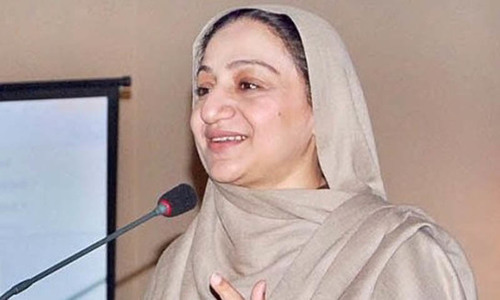The health ministry recently announced a plan to issue health cards to underprivileged Pakistanis with hopes of ameliorating healthcare within the country.
The prime minister's card, which will be available to all those who earn less than Rs200 daily, will allocate Rs50,000 to an individual for the treatment of common illnesses such as flu, cough and hepatitis.
Additionally, it will set aside Rs300,000 for more serious conditions like angioplasty, bypass and dialysis.
While this effort offers a degree of financial relief, it unfortunately fails to address the greater problems that plague Pakistan's healthcare system: the shortage of doctors and sub-standard facilities.
Also read: Healthcare in Pakistan — No one cares because they're not taught to
In Pakistan, the healthcare infrastructure is exceptionally weak. Government-run hospitals are often ghastly, understaffed buildings whose existing staff pays no attention to hygiene, supplies or patient care.
No doctors, no care
I personally remember taking a loved one to a government-run facility in Islamabad and witnessing their treatment alongside cats and roaches.
Patients were quickly herded into a room with complete disregard for their ailment; the care was haphazard and delayed. When I told the attending physician that I was a healthcare professional and expected higher quality of care, his only response was an apology.
I will never forget the look on his face, one of hopelessness and regret.
A gross shortage of physicians and ignorance about patient care means the less privileged often go unattended and suffer serious consequences. Delivering appropriate care in a timely fashion is of utmost importance when tackling disease.
I can recall a patient with a disseminated bacterial infection, who failed to receive antibiotics quickly, and suffered organ failure with subsequent death. A patient with a perforated organ can die of complications if surgery is not performed.
People in rural Pakistan suffer tremendously because they are unable to find appropriate medical care on time. They are often diagnosed and treated way too late because there is no available healthcare close by. I once had a patient who had viral hepatitis and knew nothing about his illness. He was presented to the ER with liver failure and all the manifestations of end stage liver disease. At that point, his prognosis was extremely poor and not much could be done to treat him.
Government-run facilities are not staffed adequately to handle the patient volume they are exposed to. Pakistan still ranks poorly in terms of maternal and infant mortality, and carries a high communicable disease burden all because of insufficient health resources.
Providing health cards is not the immediate answer to the shortage of physicians, poorly equipped hospitals or sub-optimal conditions that exist within Pakistani hospitals. The solution for better healthcare is capable physicians, health education and swift access to care.
Take a look: Excellent healthcare is being provided in Pakistan, but...
Many physicians work tirelessly to the point of exhaustion and are unable to care for everyone. In Pakistan, physician tenure is considered more valuable than competence or quality of training.
This unfair work environment combined with insufficient staff translates into poor patient care. Graduate medical education too in Pakistan is not at par with developed countries.
While providing health cards is a step in the right direction and permits all citizens access to private hospitals, the government must address the more obvious problems that exist. The failure to do so will continue to hurt patient care in the country.
Bolstering health care cannot be done with dispensing health cards but needs to be accomplished through improving and building more facilities, providing well-trained physicians and delivering care promptly.
Good governance will be evident when more constructive steps are undertaken in order to improve facilities and provide sufficient healthcare resources.















































